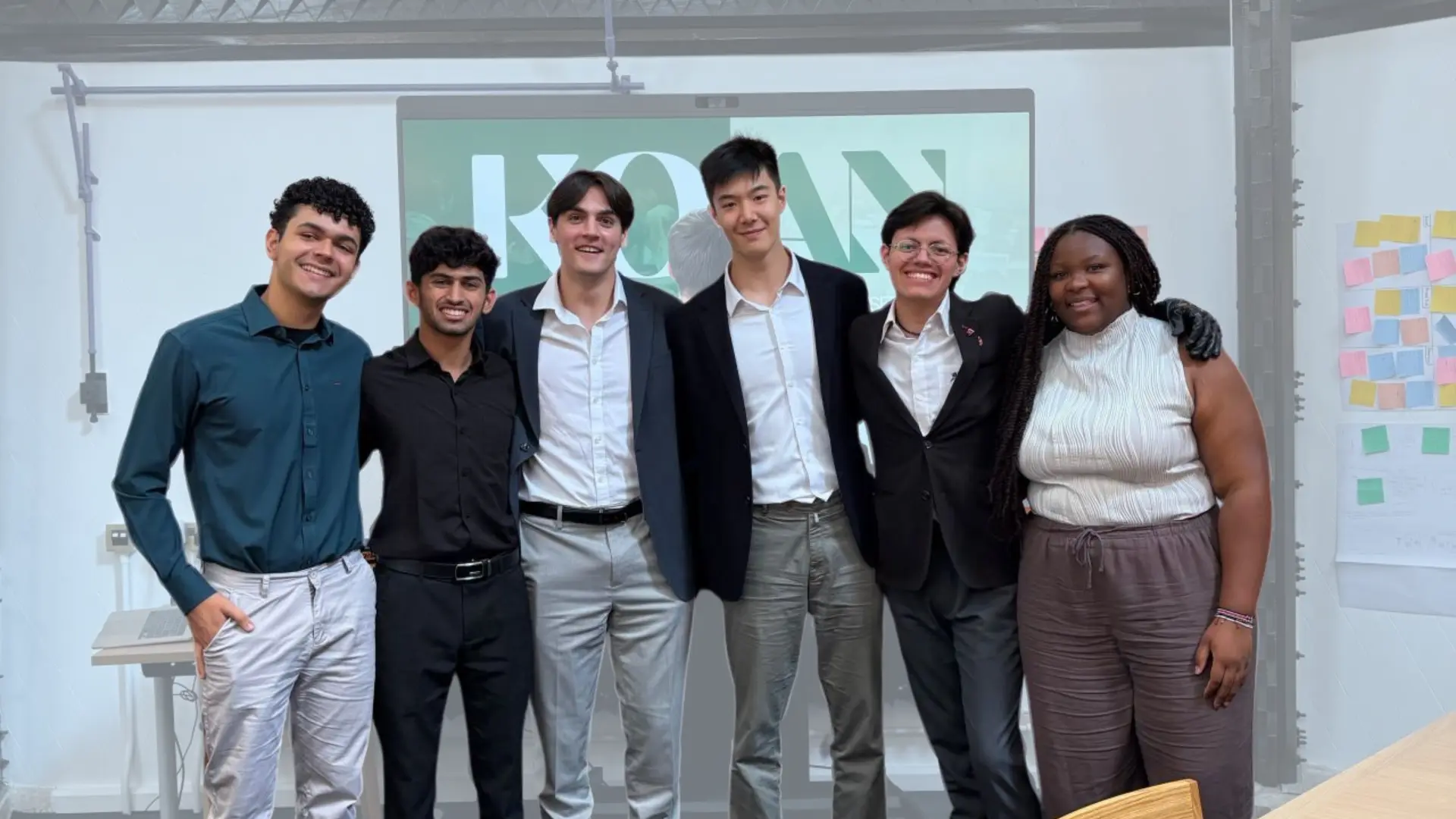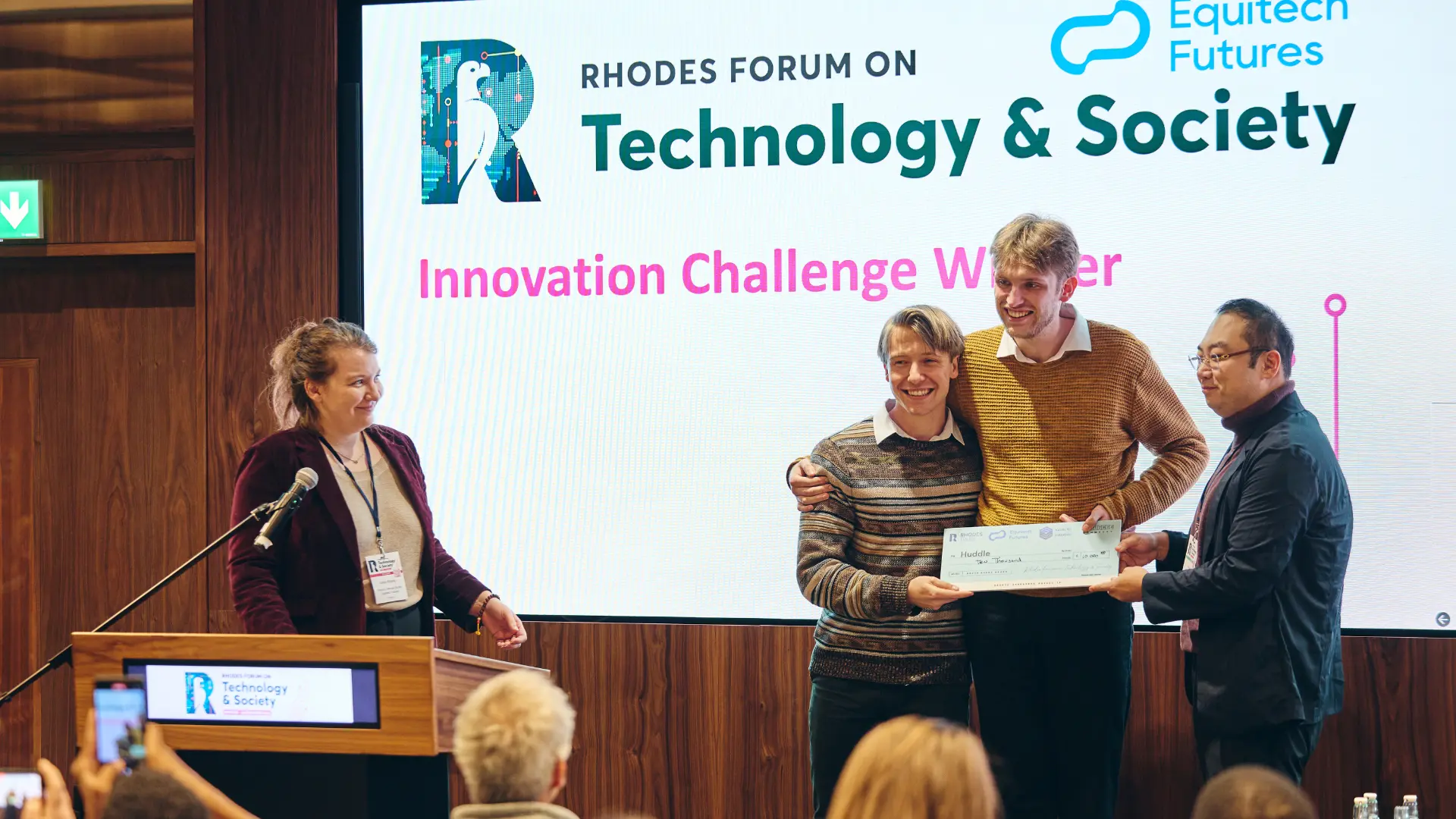
Newsroom
Using data to understand global Deaths of Despair: An Equitech alumna's research
Feb 23, 2024
5 min read
A research fellow with Equitech Futures, Sharon Lindah Nafuna is currently working on her research “Deaths of Despair: A Global Perspective.” Sharon joined Equitech Futures as a Civic Tech Institute scholar in 2023, where she met a cohort of diverse individuals working in the social sector, keen on understanding the intersection between tech and social impact. Sharon holds a bachelor's degree in Industrial and Organizational Psychology from Makerere University, Uganda. In a career spanning 10 years, Sharon has actively worked in the health sector.
Sharon worked with the Ministry of Health in Uganda for 3 years as a Technical Assistant. In this role, she coordinated projects focused on developing and implementing digital tools to address public health challenges such as reducing maternal and neonatal mortality rates in Uganda. Post that, she worked with the Makerere University School of Public Health where she studied the effects of covid on women living in urban slums, and how they were affected economically due to the pandemic. She said, “During the pandemic, a lot of women were homebound leading to unwanted pregnancies which further led to a burden on them financially and economically. I was particularly interested in women’s issues because even during my work at the Ministry of Health, I had closely worked on problems facing young women and their maternal health.” She elaborated that a part of her work involved spreading awareness among pregnant women about healthy maternal practices and combating misinformation about wrong practices followed by women during pregnancy. She said, “A common myth associated with childbirth was that if you drink alcohol during your pregnancy, your child will be born with light skin.” This led to women consuming alcohol during their pregnancies without understanding that it might lead to unsafe conditions for both the mother and the fetus.
According to Sharon, a visibly large gap with regards to education in the technological field was the dissonance between technology and impact. “My interest in working on tech-based development peaked after my stint with the Ministry of Health. It was through my work there that I saw the different ways in which technology could be a catalyst for civic change.” In one of her projects, Sharon assisted a team in implementing digital health cards in the country which could be used to collect and track medical data of citizens. “It was a pilot project which couldn’t take off in the later stages, but I believe the idea has immense potential. Having the medical history of a patient recorded and available would be a feat to achieve in public health because it would save so much time in emergency cases.”
When Sharon joined the Civic Tech Institute at Equitech Futures, she had already started developing an interest in mental health and wellbeing. “I was going through some personal challenges and wanted to seek help, when I realized that therapy and counseling is immensely expensive and thus not available to all. I started doing a deep dive into mental health issues and the regions where it is prevalent and found out that the African continent had some of the highest suicide rates in the world.” However, Sharon was met with skepticism when she tried to have this conversation with people around her. “Nobody would believe me when I stated these facts because there is a perception in Uganda that mental health is a western problem.” Thus, she decided to work towards deconstructing this perception and spreading awareness about mental health and illness.
Currently, as a research associate, Sharon is taking forward her capstone thesis from the Civic Tech Institute program, and working on it on a larger scale. “My research paper titled ‘Deaths of Despair’ explores the phenomenon of death that comes from suicide, drug overdose, and alcohol related diseases. This research is based on an already existing research conducted by two economists who studied data from the United States of America and found that deaths of despair are highest among middle-aged white people. However, I wanted to study this data from a global perspective, and that is what my paper delves into. I am working in collaboration with Apollinaire Abi, who is also an Equitech alumni, and we are building regression models and analyzing different factors that affect different regions of the world.”
I asked Sharon about how being a researcher in mental health studies affects her personal mental well being. “It’s difficult,” she said, “It’s still easy to look at numbers and data, but when I start reading materials about the people behind these numbers, I get overwhelmed sometimes and have to step away.”
Sharon shared fond memories about her time at the Civic Tech Institute. “The Community Action Lab by Thomas Murray was the happiest space in the Institute. I equally loved the other classes, but the bonds created in this particular class were special. A lot of us were fascinated by the method through which playful games and activities could turn into life lessons. We truly engaged with each other and the different worlds we come from through this class. This was very new for me, and I thoroughly enjoyed it.” Sharon also shared her experience about the Civc Tech Toolkit conducted by Abhilash Mishra. “Abhilash’s class opened my eyes to a myriad of opportunities that existed in the tech and social impact space. I became more comfortable with my skills and started to look at the field of technology in a more positive light.” Ending the interview with some advice for all future Equitech scholars, Sharon said, “It is not everyday that you will get the opportunity to be in a classroom with brilliant faculty and peers, so make use of this space. Show up for class everyday! None of us know everything, we all grow together, so be a part of the journey.”
More articles
.webp)
Newsroom
No Innovator Left Behind: How Equitech Futures uses philanthropic capital to maximize impact

Newsroom



















.webp)




.webp)

.webp)









.webp)















.webp)

.webp)


.webp)


.webp)






.webp)



